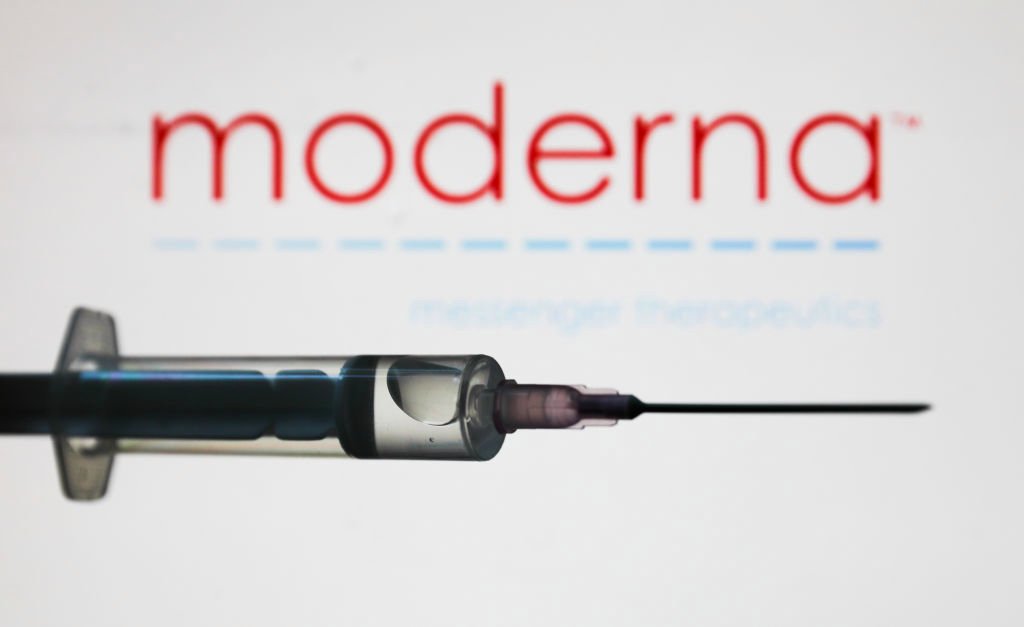RIO DE JANEIRO, BRAZIL – Moderna‘s biotechnology science director said on Thursday he was “very pleased” with the results of his COVID-19 vaccine, which produced a promising immune response even in elderly patients, although he cautioned that “no vaccine is 100 percent effective.”
In an interview with the Spanish newspaper El País, Israeli physician Tal Zaks conceded that for Moderna’s product to be effective, it will likely require two doses, which is a logistical and operational challenge that “will require additional resources”. “If it takes two injections to get rid of this pandemic, we will find a way to provide two injections,” he said.
Moderna’s experimental vaccine contains genetic material called messenger RNA, or mRNA, which scientists hope will trigger the immune system to fight the coronavirus.

Last May, the company released preliminary data showing that the vaccine produced antibodies in about 45 healthy adults, although the scientific community has repeatedly warned the company that its phase one study was small and that results may differ in other populations.
On Wednesday, the company reported that its COVID-19 vaccine produced a “promising” immune response also in elderly patients after conducting an early-stage clinical trial and testing its prototype in ten adults aged 56-70 and another ten over 71.
“We decided to try two doses because, given the severity of this pandemic, we don’t want to take any risks,” Zaks explained. “I want to offer as much protection as possible. And this is achieved with a second dose.”
Since last month, Moderna has been engaged in late-stage trials of its vaccine and expects to have at least 30,000 participants.
Regarding this latest phase, Zaks said his greatest concern is “that not enough people will be infected and have the disease during the trial.”
“It’s great for society that the situation will be brought under control and the virus will be eliminated,” he said. However, “if there are no cases, we will not know if the vaccine is effective,” since conducting a clinical trial with a control group that is administered a placebo is key to testing the product’s safety.
On the other hand, the Israeli scientist warned that “no vaccine is 100 percent effective” and that “some people will get sick regardless of my vaccine.”
Thus, the value of having data to be able to explain to the public the lack of any link between the vaccine and a potential disease that may arise. “As developers of the trial, we want to make sure we have data confirming this vaccine’s efficacy and safety before we launch the vaccination campaign,” he said.
Zaks also referred to the risk of rushing to develop a product that could end the pandemic, something that, given the potential long-term side effects, opens up “a very difficult debate about risk and benefit”.
“Every person, in order to want to be vaccinated, will have to be reassured that the vaccine is sufficiently safe and potentially effective,” he considered, so “the more data we have, the better.”
On the other hand, to be vaccinated “is also an individual choice.” “I don’t think anyone is going to impose mandatory vaccinations,” said the scientist.
Zaks also referred to the controversy surrounding the price of vaccines. AstraZeneca and Johnson & Johnson, which are developing other very promising vaccines, pledged to sell their products “at cost price”. Only Moderna said it will not sell at cost price, despite receiving US$536 million (R$2.7 billion) in funding from the US government.
Moderna’s vaccine will also be significantly more expensive than its competitors’, with an estimated price between US$50 and US$60 per dose, compared to US$3 and US$4 for AstraZeneca’s.
Zaks assured that the price of his vaccine is “more than reasonable in relation to the investment”. “Maybe other companies can offer their vaccines for free: it’s their choice and maybe they can afford it. But I don’t think we should be expected to do this,” he said.
The Israeli doctor also spoke about the sale of Moderna shares for millions of dollars in recent months by himself and other company executives, something that fueled suspicions about alleged market manipulation through insider trading. Many executives changed their sales plans after the promising preliminary results of the first trial, as disclosed by several US media outlets.
Shares of Moderna, which has never launched a product into the market during its 10-year existence, have soared by as much as 380 percent since the start of the year, when news of its promising potential to produce a coronavirus vaccine emerged.
Asked about it, Zaks said that when he prepared his sales plan “we hadn’t injected anyone with the vaccine yet”.
“I had a little bit of money and I needed to diversify what I had,” he argued. “Looking back, I don’t know if I was stupid, but I can’t change it.”
Source: infobae

